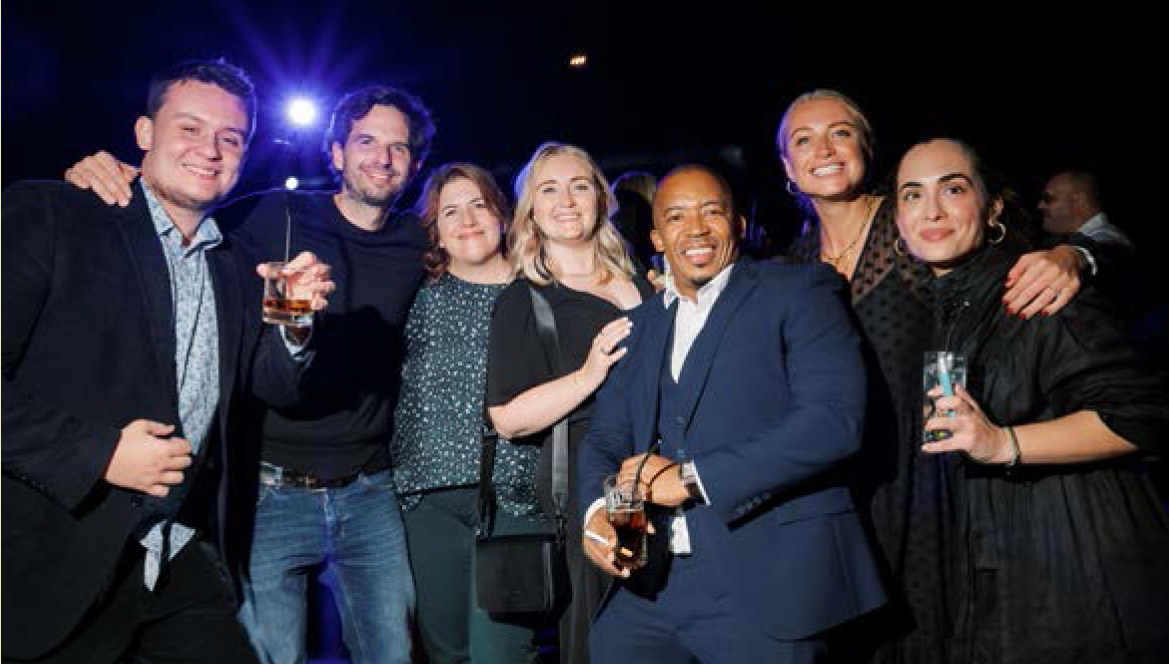Can you give us an overview of where you are as a business right now?
Our focus and core market is, and always has been, German-speaking places – and we have been quite successful in this field. Also, our team are all German speakers. Basically, we thought we can add value by writing about our product services, promotions and news linguistically. In the early days, you just translated your website and that was it – however, those days are definitely over. It used to be a competitive advantage to be a native speaker inside the market, which made us different. We were always reluctant to go to other countries – we were already in three with Germany, Austria and Switzerland – but with the regulations in Germany getting tighter, we thought maybe it was time to adapt our concept to other markets. And since we all think it makes sense if we can at least read the content in other geo locations (GEO), we decided to go for English – which is still a worldwide market. But it all starts from the organisation and getting the right people. At the end of the day, we’re in the publishing business and advertising business; for that you have to produce content – that process, fortunately, still requires human beings. There is a lot of machine-generated content out there, but if you really want to rank nowadays you still have to produce unique and well-written content. What we were looking for was the right team for our English division – and we found them; so then we said let’s go for it, let’s do the English version and see how far we go.
Now you are targeting English-language markets, do you hope to penetrate the UK or US markets?
It’s definitely not that simple. If you enter that big market worldwide, you start to compete with even more serious players. However, we thought we’d be able to compete in certain longtail keywords – it’s ridiculous that I’m saying that – but if you work with the internet, and especially with Google, it’s a lot of trial and error. If you don’t start it, you’ll never know, but neither can you commit too much to one line of thought, one strategy. At the same time, you see the results, improve here and there, push a bit more and so on and so forth – it is a learning curve for us and our English writers. We hope we penetrate the market, there are a lot of keywords you can attack and are able to rank; I don’t think we’ll be able to seriously compete with the big guys in the UK or eventually in the US – although the US is fragmented because of local legislation for every state. The US we keep in mind, but we are not yet going for it. Time isn’t an issue, we’re not rushing things, we never did. We’re trying to build up things slowly, we have time, we don’t need to be building up things in 3-5 months’ time.
What about the Asian market, any activity out there?
We thought about it, but the only English-speaking GEO may be Hong Kong or some parts of the Philippines. For the local languages we really don’t want to get into it. There’s so much different writing and if we can’t produce quality content, we’re not going to do it.
When choosing the language you were going to move into next, was it always English? The LatAm region is very attractive right now, so maybe Spanish?
Yes, LatAm has been attractive for the last 15 years. But I still haven’t seen it become huge yet. It depends on the payment systems and the economic situation: if people have disposable income they will spend it on movies, games, gambling, whatever source of entertainment they can. So I don’t see LatAm yet. But Spanish is great as a language to have, obviously you have other nations that speak the language; but it’s difficult and we’re not yet looking into it.
How is the German market, are you still building there?
Germany remains our core market, even though it has become really complicated. There are a few factors as to why it has become so complex. First of all, the regulation is extremely cumbersome, very strange and we all know who benefits from it. The general set-up of the law looks like it was influenced by local incumbents. There is an inclination to favour local and land-based incumbents, you just have to look at the first officially licensed brands. Are they making fun of us? I don’t know – it is seriously breathtaking. Also, it takes very long; the first one that was licensed was ‘by total coincidence’ a joint venture of Novomatic and Gauselmann. They got the first licence in April, while the others are all getting their licences now, so they have had a head start of six months. Total coincidence.
The second part, which I think is worse, is taxation. I don’t want to go into detail, but they are taxing wagers and bets, not gross gaming revenue. I think it’s clear to everybody that any licence regime based on this is doomed to fail; we saw that in France. Nobody looked to Italy, which is, for me, the total blueprint on how you do it well. Italian regulation is fantastic, that’s how you do online gambling regulation. When it was discussed for the German market, they looked everywhere else like Denmark, Sweden, France and the UK, but they hardly looked at Italy. If you know exactly how this regulation in Italy works – which was done six or seven years ago, so it’s not like its new – It’s a total success and nobody wants to copy it. Anyway, the taxation is a disaster, which is likely to be legally challenged because it is totally different from the land-based taxation, so it favoured the land-based as it has a higher return to player than online can provide.
The third part is the entertainment value itself. People are playing to have fun, so they think to make it less fun, with the excuse to protect the players. This means there are no jackpots anymore, the spin has to last for at least five seconds and there is no auto-play. All these things were made in the name of protecting the player but make things more boring. The other part of it, which actually makes sense, is the limits for the players. They have daily limits and monthly limits – the Italian legislation has that. There’s also a central player database which will probably never be implemented because there is a privacy law that is very strict. Another thing is that you can’t have is the ability to offer slots plus sports betting anymore, you have to have two different licenses and two different sites. And you can’t have live casino anymore, that will be a third licence. One which will likely only be given to the existing land-based casino operators. It is hard to understand, and on top of that they put language particularities – you’re not allowed to call a website that offers slots "Online Casino" anymore – it’s written in the law.
In light of the heavy regulations, was the move into the English -language a deliberate move to expand outside of Germany?
Yes, absolutely, that was also a thought we had to say let’s be a bit broader; we don’t know what’s going on in this market anymore, we cannot force further developments. We wanted to have more skills and revenue streams.
Published: 28 November, 2022
The new (english-Speaking) world
Georg Heinrich, Founder of Casino Plus Bonus, speaks to Trafficology about the brand’s move into the English language market and the tightening regulations in Germany











